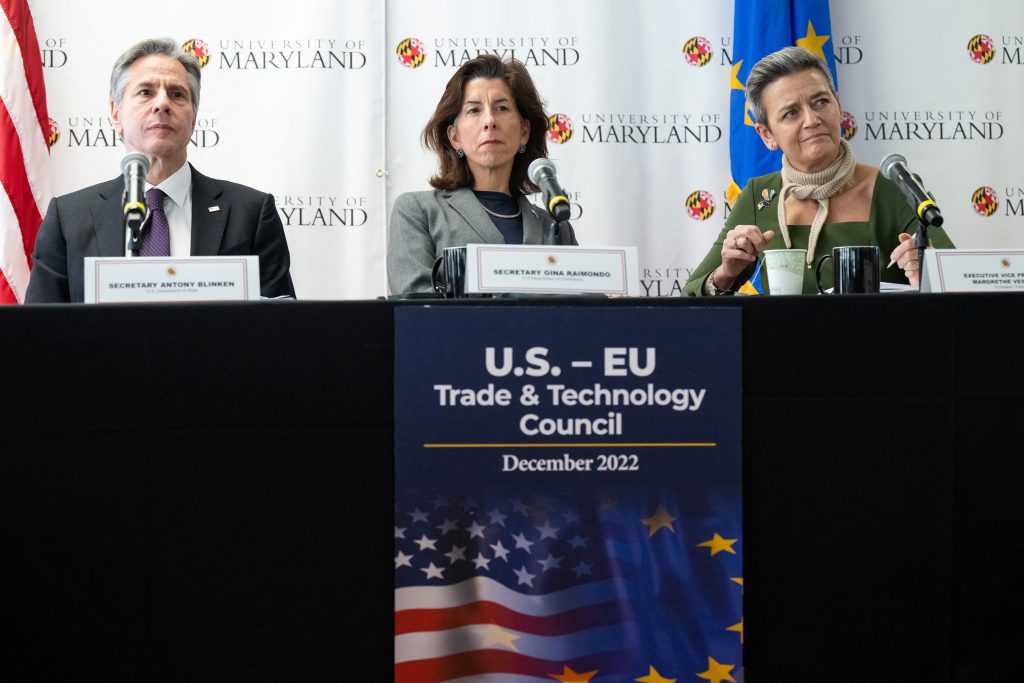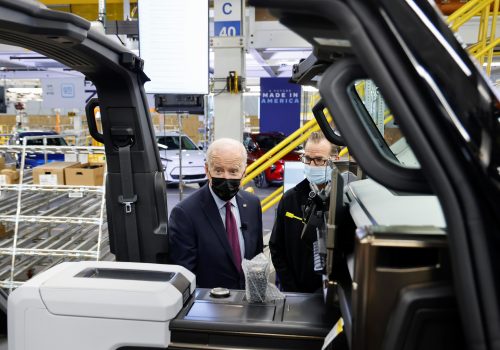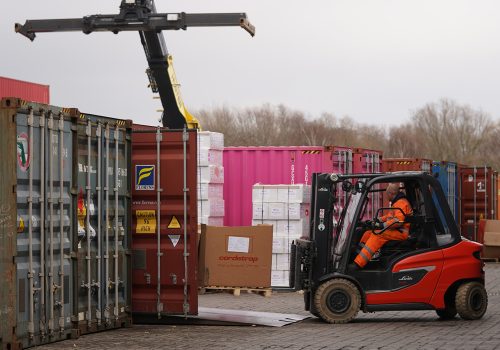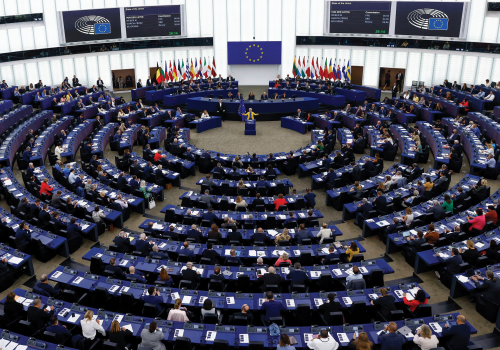The launch of the US-EU Trade and Technology Council (TTC) was a major accomplishment for transatlantic ties. After four years of historically high tensions, it was critical for the United States and European Union (EU) to stabilize the relationship. And after the failure of the Transatlantic Trade and Investment Partnership (TTIP), it was also important for the two sides to adopt a flexible approach to avoid the same traps that have plagued cooperation on trade and technology issues for years.
The TTC is only eighteen months old, but so far it has not met its high expectations in coordinating US-EU trade and technology policy. The TTC’s role in developing a robust sanctions and export-control response to Russia’s invasion of Ukraine cannot be denied. However, it has yielded little else of significant value. The TTC has not led to joint policy action on China, it has not made any discernible progress on Biden administration priorities such as climate change, and it has not prevented new disputes or subsidy wars.
Monday’s TTC ministerial meeting outside Washington may signal incremental progress on a few of its objectives, but it is highly unlikely to herald significant progress on resolving US and EU concerns about the other side’s discrimination on critical climate and digital issues. The joint statement released after the meeting offered only platitudes on the most contentious issue—new electric vehicle (EV) tax credits in the US Inflation Reduction Act—without presenting a specific path forward. Indeed, according to reports, the TTC devoted just forty-five minutes of its Monday agenda to the EV dispute and it does not appear to have touched on the EU’s digital discrimination at all.
To help set up the next edition of the TTC for success, the United States and EU should immediately agree that the TTC needs to evolve and make addressing today’s transatlantic irritants one of its principal aims. Tackling these issues ahead and successfully resolving them is the key to opening up a new era in US and EU trade relationships, something necessary to confront tomorrow’s most substantial problems, whether they be climate, digital policy, or the threat posed by China.
At the moment, US-EU trade relations appear to be on a downward spiral with the TTC’s failure to prevent the adoption of policies that blatantly discriminate against the other side. The United States’ ill-advised EV tax credits, which only provide benefits to vehicles assembled in North America, is the most recent example. But the United States is far from the only offender. The TTC has not even placed a speed bump in the EU’s mission to discriminate against US technology leaders through one-sided digital taxes, imbalanced data disclosure elements in the Digital Marketing Act and Data Act, and the exclusion of US cloud companies from EU and French cloud-security certifications, to name a few. Given the priority that the United States and EU place on joint leadership on climate and digital policies, the fact that both sides are discriminating instead of coordinating with each other is all the more tragic.
But perhaps the latest crisis in the relationship actually points to a more promising path forward. In particular, what this spat helps illustrate is the need for a permanent body through which the United States and EU can raise, discuss, and try to resolve major irritants in real time at the ministerial level. The EU’s outrage over the EV tax credit has led to the creation of an ad hoc task force to try to address the measure’s discriminatory elements, but it is not as high-level as the TTC, does not address broader green subsidy issues, and will not necessarily head off subsequent misguided policies. It is also hard to understand why such an effort is one-sided—only focusing on EU complaints about a recent policy while ignoring US ones.
Regardless of the mechanism utilized, fixing these policies will not be easy. In order to address EU concerns about the EV tax credit, the US Congress will likely need to modify the legislation. Likewise, addressing US concerns about the EU’s digital sovereignty agenda will require policymakers across the EU to significantly modify their approach to regulating such that it applies equally to companies from the US and the rest of the world. This points to another needed change to the TTC: the Biden administration and European Commission must take steps to better secure buy-in from the US Congress, the EU Parliament, and important EU member states including France to work in good faith to resolve trade disputes. Complete political buy-in is a necessary ingredient for real change in the relationship’s trajectory in any case.
These ideas should not supplant the rest of the TTC’s agenda. Long-term standard setting—especially as a counterweight to Chinese efforts—is a laudable and important goal. But as the events of the past few years illustrate, efforts to coordinate are unlikely to yield success if the United States and EU continually get caught up in short-term disputes that are more politically pressing for their leaders.
Clete Willems is a nonresident senior fellow at the Atlantic Council’s GeoEconomics Center and former deputy director of the National Economic Council in the White House.
Further reading
Fri, Dec 2, 2022
The big problems you won’t hear about at the EU-US Trade and Technology Council
New Atlanticist By Kenneth Propp
The TTC’s exclusion of the issues of greatest import in transatlantic economic affairs does not inspire confidence that it will prove to be a lasting institution.
Fri, Dec 2, 2022
Policy memo: How the EU and US should overcome their trade and supply-chain disputes
New Atlanticist By
Ahead of the next meeting of the US-EU Trade and Technology Council, here are five tests for the EU and United States to show progress on the trade and supply-chains agenda.
Wed, Nov 2, 2022
Digital sovereignty in practice: The EU’s push to shape the new global economy
Report By Frances Burwell, Kenneth Propp
What does the European Union's push for "digital sovereignty" mean in practice? Frances Burwell and Ken Propp provide an update to digital sovereignty and its transatlantic impacts.
Image: U.S. Secretary of State Antony Blinken, U.S. Secretary of Commerce Gina Raimondo and European Commission Executive Vice-President Margrethe Vestager participate in a US - EU Stakeholder Dialogue during the Trade and Technology Council (TTC) Ministerial Meeting at the University of Maryland in College Park, Maryland, U.S., December 5, 2022. Saul Loeb/Pool via REUTERS



